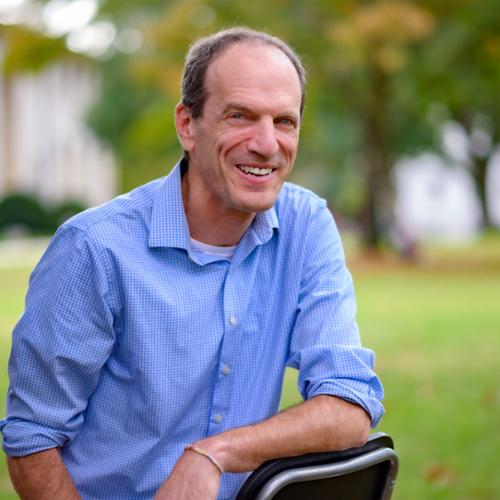Arri EisenProfessor of Pedagogy
Arri Eisen received a BS with honors from the University of North Carolina–Chapel Hill and a PhD in biochemistry from the University of Washington–Seattle. He has been teaching at Emory since 1990 and is in the Department of Biology, Institute for the Liberal Arts, and the Center for Ethics.
Eisen has been the director of the program in Science and Society since its inception in 1999. This program, with support from the Nat Robertson Fund, facilitates visiting lectures and professorships and programming from science fiction to medical history, and from evolution to Buddhism and science.
Eisen has also been the director of teaching since its inception in 1999 for FIRST, Fellowships in Research and Science Teaching, an NIH-sponsored partnership with Morehouse, Spelman, Morehouse School of Medicine, and Clark Atlanta University that has supported postdoctoral training in teaching and research for more than 165 fellows who are now active in science throughout academia and industry.
Eisen is a leader in the Emory-Tibet Science Initiative, a historic program that since 2008 has worked to integrate modern science into the six-hundred-year-old curriculum of the Dalai Lama’s monks and nuns in exile in India. Eisen’s book on this project (written with one of the monks, Yungdrung Konchok) The Enlightened Gene, will be published by University Press of New England in 2017.
In a typical week, Eisen teaches undergraduate, master's, PhD, and MD students; physicians; and monks such courses as How to Teach, Cell Biology, Epigenetics, Bioethics, Ethics in Clinical Research, and Science and the Nature of Evidence. Eisen had a radio show on WABE, 90.1FM for two years, wrote a column for ReligionDispatches on science and religion for two years, and has published in the peer-reviewed literature with lawyers, chemists, philosophers, public policy scholars, religionists, biochemists, geneticists, physicians, bioethicists, and several of his students.
Scholarship
Genetics, epigenetics, biochemistry, science education, bioethics, science and religion.
